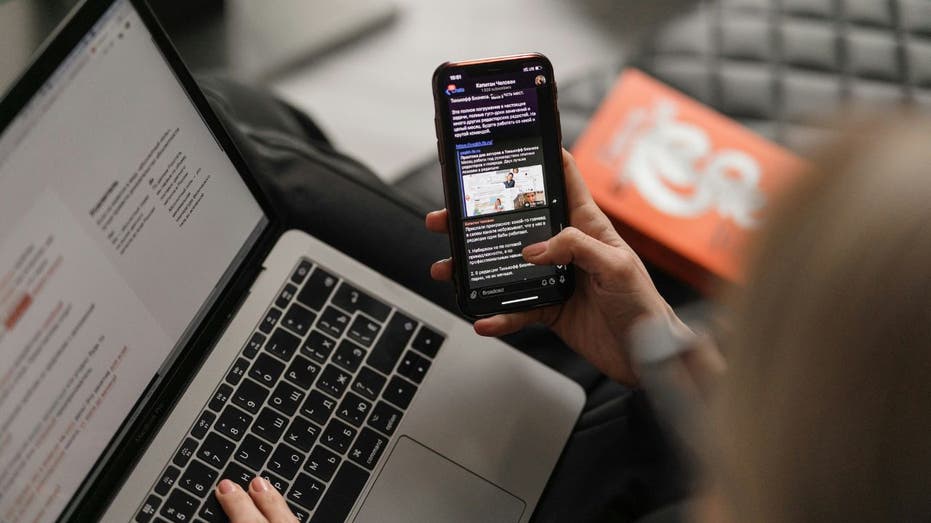5 Essential Mobile Privacy Terms You Must Understand to Safeguard Your Information

Your smartphone is not just a device; it’s an integral part of your daily life, keeping track of your activities, storing sensitive information, and even managing your online interactions. However, how well do you understand the privacy measures it has in place—and the risks that may accompany them?
In this article, we will explore five critical mobile privacy terms that can significantly impact how you protect your personal information. Whether you’re an iOS enthusiast or an Android aficionado, grasping these concepts will empower you to manage your digital footprint effectively.
Stay tuned for our upcoming articles in this series, where we will delve into more privacy-related tech terms and address the most pressing questions from readers like you.
Stay Informed and Protected!
Understanding Location Tracking: More Than Just Directions
Every time you check the weather, tag your location on social media, or use navigation apps, you’re sharing your geographical data. This is made possible through **Location Tracking**—a feature that uses GPS, Wi-Fi, Bluetooth, or cellular data to ascertain your precise location.
What many users don’t realize is that numerous apps continue to track your movements even when they’re not actively in use. While some apps utilize this data to provide localized content or advertisements, others may sell it to third parties.
How to Safeguard Your Location Data:
Awareness is your first line of defense. Regularly review which apps have access to your location and adjust the permissions as necessary.
Uncover More: Discover the Top 20 Apps That Track You Daily.
App Permissions: What You’re Giving Up for Convenience
When installing new applications, you’re often prompted to grant certain permissions—access to your camera, contacts, microphone, or calendar. These **App Permissions** dictate what information and features an app can access on your device.
While some requests are justifiable (like a camera app needing access to your camera), others may raise eyebrows. For instance, why would a flashlight app require your location or call logs?
Tips for Managing App Permissions:
Your data should not be a trade-off for convenience. Take the time to review and set boundaries on what permissions you grant.
Explore More: Did You Accidentally Grant Apps Permission to Your Google Account?
Two-Factor Authentication: Your Extra Layer of Security
Passwords alone are not foolproof. This is where **Two-Factor Authentication (2FA)** comes into play. It adds an additional layer of security by requiring two forms of identification before granting access to your accounts—typically something you know (your password) and something you have (a text message code or authentication app).
Many popular apps now support 2FA, which can thwart hackers even if they manage to steal your password.
Common Types of 2FA:
Activating 2FA wherever possible is one of the simplest yet most effective ways to enhance your mobile security.
Mobile Advertising Identifier: The Invisible Tracker
Every smartphone has a unique string of numbers and letters known as a **Mobile Advertising Identifier**. This identifier allows advertisers to monitor your activities across various apps and websites, creating a profile of your interests.
While this identifier doesn’t reveal your name, it can be linked to your device for targeted advertising, effectively acting as a digital name tag for marketers.
How to Opt-Out:
You are not obligated to allow your device to advertise on your behalf. Take control of your advertising preferences.
Learn More: How to Escape Facebook’s Unsettling Ad Tracking.
VPN: Your Personal Privacy Tunnel
A **Virtual Private Network (VPN)** serves as a secure tunnel for your internet connection. It conceals your online activities and protects your personal data, particularly when using public Wi-Fi networks.
In addition to safeguarding your information from prying eyes, a VPN masks your actual location by routing your internet connection through a server located elsewhere, allowing you to access content that may be restricted in your region.
Why You Need a VPN:
When using public Wi-Fi at locations like coffee shops or airports, your data is vulnerable to cybercriminals. A VPN encrypts your internet traffic, shielding your activities and preserving your privacy.
Choose Wisely: Not all VPNs are created equal. Some free services may log your data or degrade your connection speed. Opt for a reputable VPN service to ensure your online privacy is well-protected.
Take Action to Secure Your Digital Life
Your mobile device is a powerful tool, but it also comes with significant privacy risks. By familiarizing yourself with these five essential mobile privacy terms, you can implement straightforward yet impactful strategies to safeguard your digital life. From limiting unnecessary app permissions to activating two-factor authentication, small adjustments can make a substantial difference in protecting your personal information.
If you have questions about mobile tech terminology or need help tightening your privacy settings, feel free to reach out. We’re here to assist you with more tips and guidance.
For more tech insights and security alerts, subscribe to our CyberGuy Report Newsletter.
Stay connected and informed!




